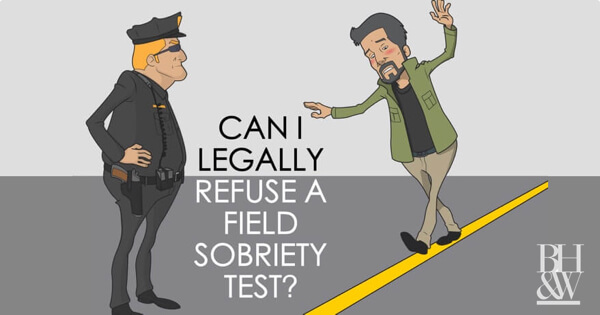
We get this question all the time. People want to know if they can refuse the field sobriety tests when the police ask them to participate
Yes! You may legally refuse field sobriety tests in Texas (unless you are already on probation and it is a condition of your probation that you cannot refuse). This article explains why you should consider refusing the SFSTs.
Standardized Field Sobriety Tests Can Be the Best Evidence for the State in a DWI Trial
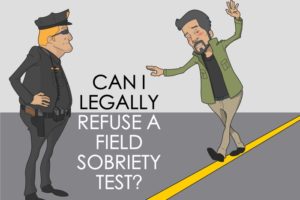 When a driver is stopped in Texas and the officer suspects that the driver may be intoxicated, the officer will typically run through a standard DWI roadside investigation. This investigation begins by simply observing the driver (bloodshot eyes, odor of alcohol, slurred speech) and asking some questions:
When a driver is stopped in Texas and the officer suspects that the driver may be intoxicated, the officer will typically run through a standard DWI roadside investigation. This investigation begins by simply observing the driver (bloodshot eyes, odor of alcohol, slurred speech) and asking some questions:
- “Where are you coming from this evening?”
- “Have you had anything to drink tonight?”
- “How many is a couple?”
If the officer sees enough to warrant a further investigation, they will ask the driver to step out of the car.
“Let’s Make Sure that You’re Okay to Drive Tonight.”
Once the driver steps out of the car, the officer’s body worn camera and dash camera are recording so that the footage can capture the interaction (to be used later at trial if needed). The officer will then explain that they are going to do some tests just to “make sure that you’re okay to drive.” Note: The officer WILL NOT NORMALLY ask permission to conduct the
standardized field sobriety tasks. He will jump right in and hope that you just go along with it.
There are 3 standard tests that are explained in more detail on our DWI page.
The Standardized Field Sobriety Tests are Not Designed for You to Pass
The 3 standard tests are (1) the HGN test (Horizontal Gaze Nystagmus), which is the “eye test,” (2) the Walk and Turn test (also known as the Walk the Line test), and (3) the One Leg Stand test. I don’t have enough time to go into the many problems with the tests, but to list a few:
- The Eye Test (HGN) – this test requires the officer to be precise with his stimulus device in the field and they often make mistakes in distance and degree. Further, even with updated body worn camera technology, the video rarely shows what the officer claims to observe in the eyes. So we are usually left with officer testimony alone (and juries generally do not trust the “eye test”);
- The Walk and Turn test – this test is difficult (even for completely sober people – try it yourself sometime) because it requires the person to take challenging heel to toe steps on an imaginary line in all conditions and officers never take into account the person’s stress level, the weather/wind conditions, footwear, fatigue from a long day, etc.; and
- The One Leg Stand – this test is also difficult. It requires you to balance on one foot for 30 FULL seconds. TAKE NOTE – if the person puts their foot down at 27 seconds it is a strike against them and the officer will use this as evidence that they are indeed intoxicated.
Throughout the years, the tests have been debunked and challenged by experts as unreliable, but the courts are still allowing them as proof of intoxication (they are claimed to be used as evidence of the loss of mental or physical faculties). In short, these tests exist for the officer to build a case against you in court and we feel ultimately set you up to fail. So what benefit is there for a driver who is suspected of DWI to take the tests if they don’t have to?
You DO NOT Have to Submit to Standardized Field Sobriety Tests in Texas
Even though the officer might act as if you must take the tests, you don’t. If he asks you to exit the vehicle then you must get out of the car. But as soon as he tries to start the HGN (eye test) on you, you can (and probably should) politely refuse to take the test. Take note of what I said…Politely Refuse. Do not be a jerk about it and go into a diatribe about how you read this blog and you know these tests are no good and that you refuse to do them. Remember this is all being captured on audio and video; audio and video that will be exhibit #1 at a trial if it goes that far. Simply inform the officer that you do not wish to participate in the standardized field sobriety tests.
Can I Still be Arrested if I Refuse to Perform the Field Sobriety Tests?
Yes you can (and probably will) be arrested if you refuse to perform the SFSTs. If the officer already felt like he had enough evidence to administer the tests, then he will probably go ahead and arrest you for DWI if you refuse to take them. But hey, you were probably going to get arrested anyway. Now, however, there will be less evidence against you. You have an absolute right not to give evidence against yourself. This constitutional right applies equally in the DWI context.
Should I Take the Tests if I Haven’t Had that Much to Drink?
You are an adult, and only you know your own level of coordination, so it is really up to you. But our advice (from over 16 years of handling DWI cases) is NO. You should not perform the standardized field sobriety tests. Your DWI case becomes tougher to defend if you look intoxicated on the video. Even if you haven’t had that much to drink, there are many reasons why you might appear intoxicated on the video. For instance, perhaps:
- You are extremely nervous and have a high stress level from being pulled out of your car in the middle of the night by a police officer;
- Your footwear is not ideal for walking and turning (high heels, flip flops, etc);
- The wind is blowing hard;
- It is cold outside and you are shivering;
- You have an old injury that causes you to limp or not walk “normally”; or
- You have bad balance (even on a good day).
Lastly, these tests are extremely technical. The instructions are long and tedious and can be very confusing for someone who has never attempted these tests before. Officers also like to compound this issue by providing you the instructions very aggressively and rapidly. The officer often sounds like the disclaimer at the end of a pharmaceutical commercial when they are reading you the instructions for the tests. Your failure to comply perfectly with these instructions can be used against you in court.
Next Time, Please Take an Uber
We hope you will listen to our advice regarding DWI field sobriety tests. Better yet, we hope that you’ll just pay the $40 for an Uber or taxi from the bar or restaurant and avoid this altogether. But if you didn’t take our advice and you didn’t call and Uber, call us and we’ll be happy to be your advocates.
*This article did not discuss whether you may legally refuse a Breath Test or a Blood Test. We’ve written on that many times and the answer is YES. You may refuse breath and blood tests UNLESS the officer has a warrant for your blood. If they have a warrant, you may not refuse.


 Car insurance premiums, like everything else these days, have reached historic highs. You get your renewal notice in the mail and gasp at the increase. So, you make the call to your insurance agent to see what can be done to save you money.
Car insurance premiums, like everything else these days, have reached historic highs. You get your renewal notice in the mail and gasp at the increase. So, you make the call to your insurance agent to see what can be done to save you money.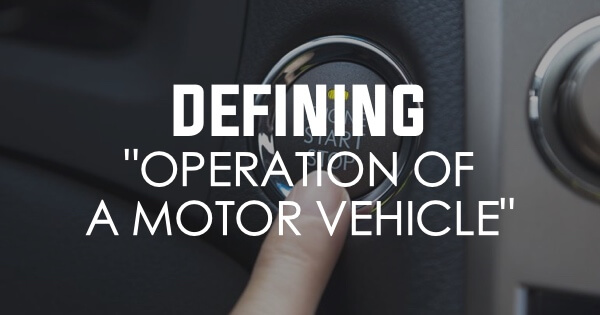
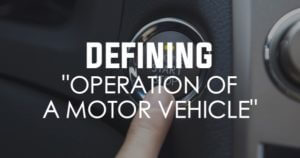 The simple answer is that it means whatever the jury (not the judge) says it means.
The simple answer is that it means whatever the jury (not the judge) says it means.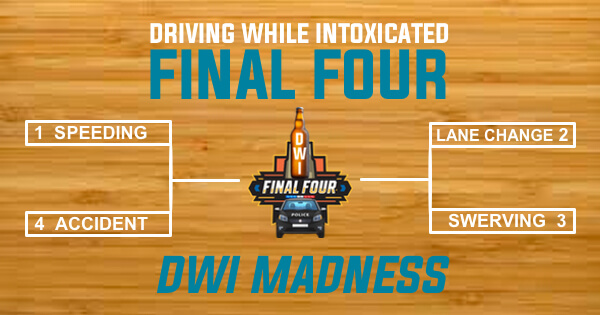
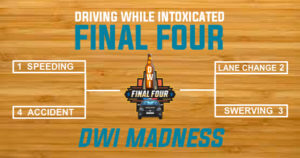
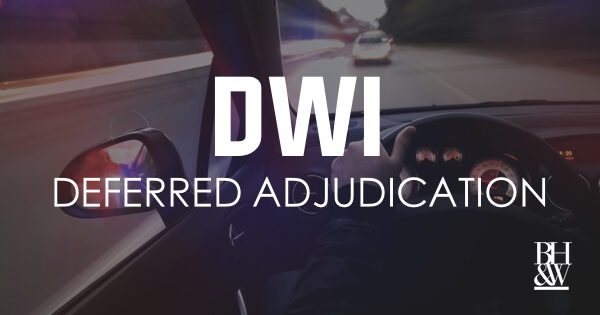
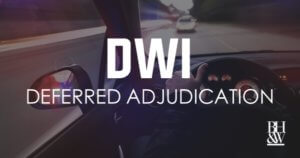 For years, I’ve had the difficult task of trying to explain to clients facing a first-time DWI charge why their case is treated more harshly under the law than other misdemeanor criminal offenses like assault, prostitution, theft, drug possession, etc. In Texas, you can be charged with one of the latter crimes and have the option of
For years, I’ve had the difficult task of trying to explain to clients facing a first-time DWI charge why their case is treated more harshly under the law than other misdemeanor criminal offenses like assault, prostitution, theft, drug possession, etc. In Texas, you can be charged with one of the latter crimes and have the option of 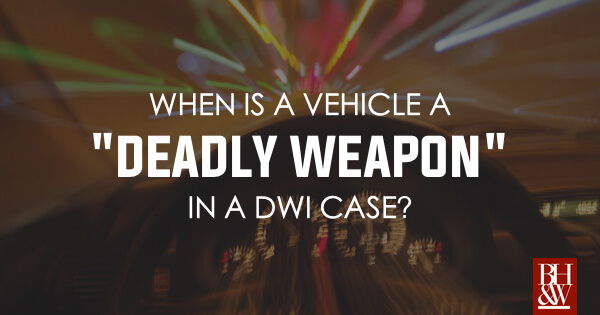
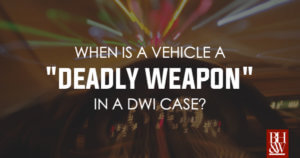 One of the common factors in any DWI case is that there must be a motor vehicle involved. Every time. When someone who is under the influence of drugs and/or alcohol chooses to drive a motor vehicle, should the car itself be considered by Texas courts to be a “deadly weapon?” When do ordinary, daily objects, such as cars, become “deadly weapons” for the purpose of charging enhancements and raising the stakes in a criminal case?
One of the common factors in any DWI case is that there must be a motor vehicle involved. Every time. When someone who is under the influence of drugs and/or alcohol chooses to drive a motor vehicle, should the car itself be considered by Texas courts to be a “deadly weapon?” When do ordinary, daily objects, such as cars, become “deadly weapons” for the purpose of charging enhancements and raising the stakes in a criminal case?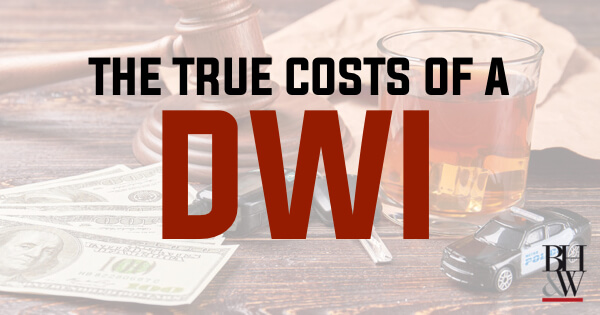
 You’ve seen the blue and white signs posted all over Texas roadways that read “DWI – You Can’t Afford It.” The signs offer a simple warning, but they don’t detail the actual costs related to a DWI arrest. So, we thought we’d help give you a general idea of what to expect financially if you or someone you know is faced with a DWI charge in Texas. The figures that we provide may not be 100% accurate for every case or situation but are drawn from our experience in representing well over 500 Texans charged with all types of DWI offenses.
You’ve seen the blue and white signs posted all over Texas roadways that read “DWI – You Can’t Afford It.” The signs offer a simple warning, but they don’t detail the actual costs related to a DWI arrest. So, we thought we’d help give you a general idea of what to expect financially if you or someone you know is faced with a DWI charge in Texas. The figures that we provide may not be 100% accurate for every case or situation but are drawn from our experience in representing well over 500 Texans charged with all types of DWI offenses.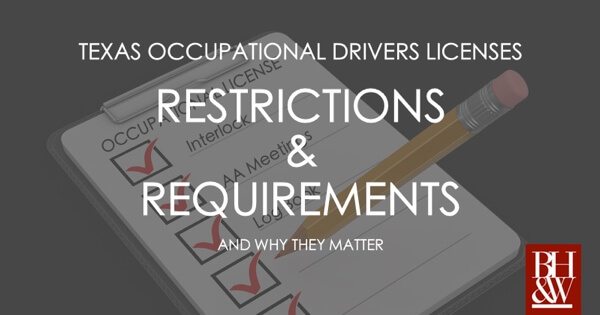
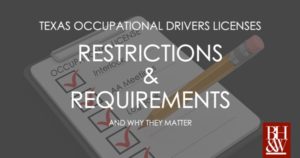 If you’ve received an occupational license related to a DWI ALR suspension (blood or breath test refusal or failure) in Texas, the judge who granted you that license likely included several restrictions and requirements you must follow. Those requirements can be found in the order granting your occupational license. You should have that order handy because Texas Transportation Code Section 521.250 requires you to possess a certified copy of the order when you drive. In fact, it’s a criminal offense not to possess a certified copy (we’ll revisit that below.)
If you’ve received an occupational license related to a DWI ALR suspension (blood or breath test refusal or failure) in Texas, the judge who granted you that license likely included several restrictions and requirements you must follow. Those requirements can be found in the order granting your occupational license. You should have that order handy because Texas Transportation Code Section 521.250 requires you to possess a certified copy of the order when you drive. In fact, it’s a criminal offense not to possess a certified copy (we’ll revisit that below.)

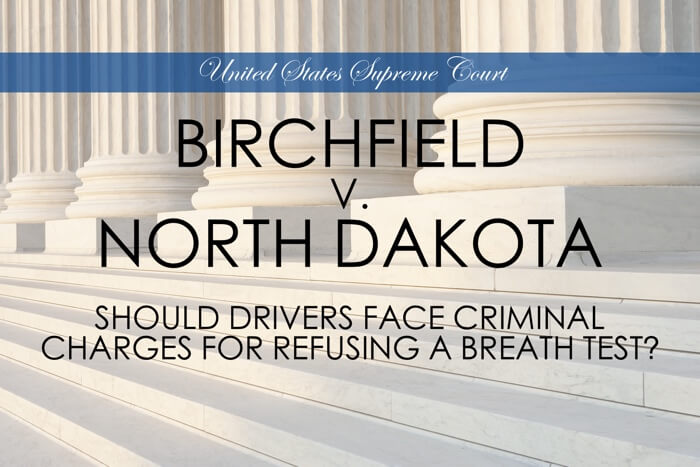
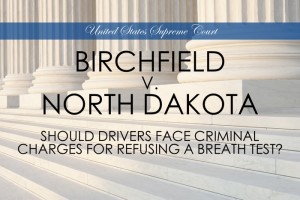 On April 20, 2016, the Supreme Court of the United States (“SCOTUS”) heard
On April 20, 2016, the Supreme Court of the United States (“SCOTUS”) heard 





